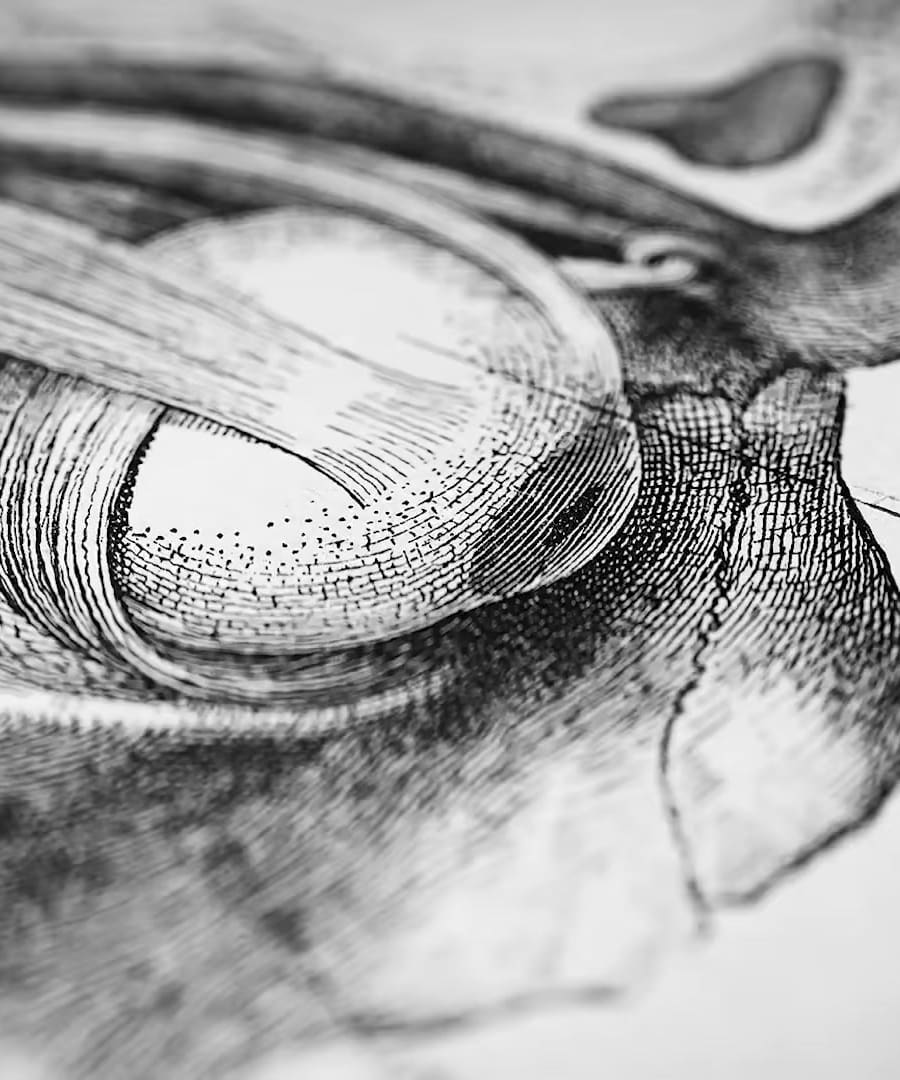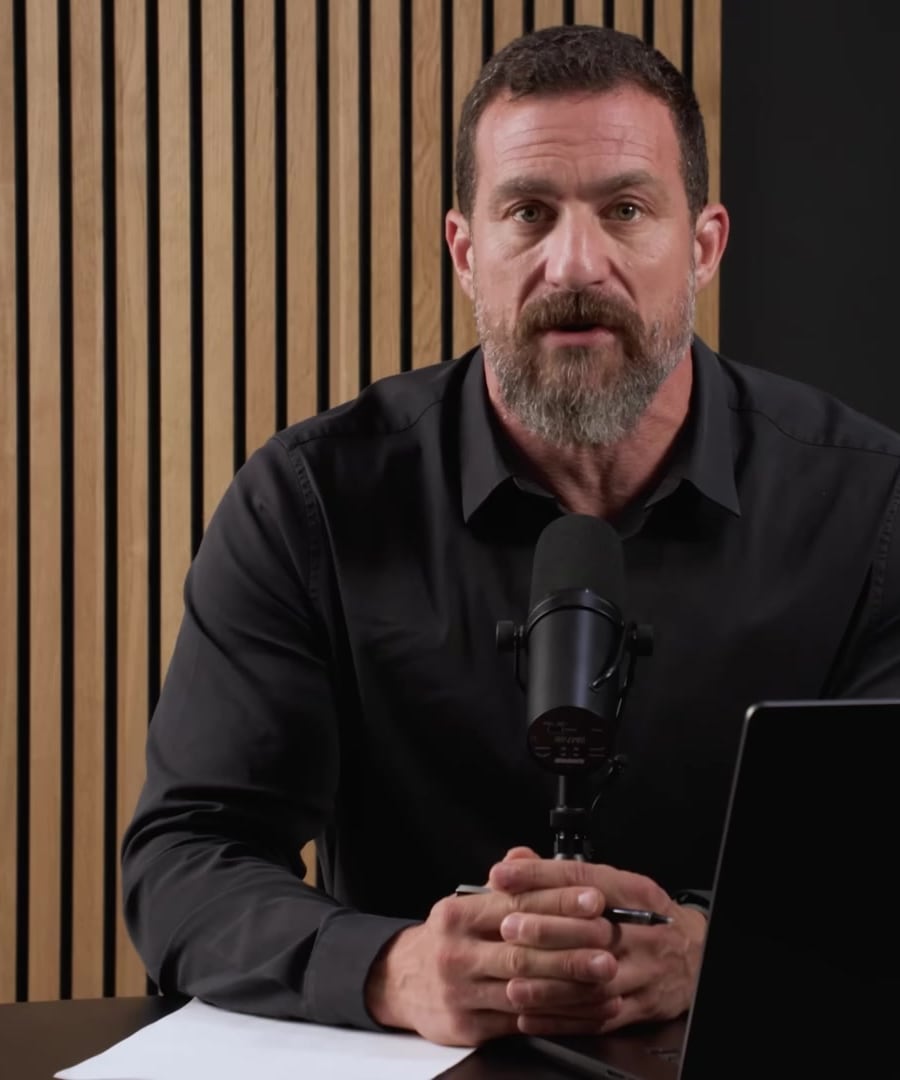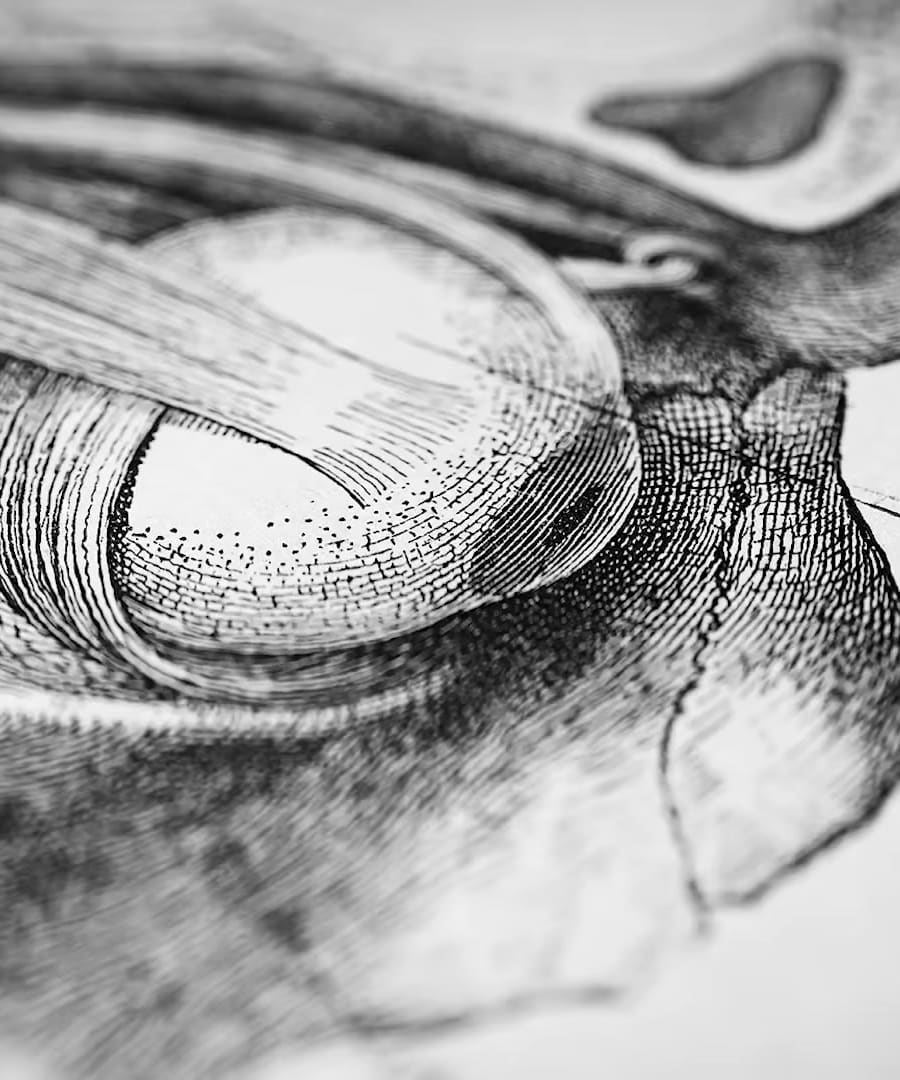How can I cultivate a good personalized routine for holistic health and neurohacking?
I currently do not have specific information from the Huberman Lab on creating a personalized routine for holistic health and neurohacking. However, you might find it useful to look through some of the episodes from the Huberman Lab podcast that cover aspects like sleep, nutrition, exercise, and mental health, as they could offer insights that help in forming a holistic health routine.
If you have any other topic or question related to the Huberman Lab's discussions, feel free to ask!
RELATED QUESTIONSHow can I create a personalized health routine according to the Huberman Lab?
Sources:
To create a personalized health routine based on insights from the Huberman Lab, consider focusing on the following areas as detailed by Dr. Andrew Huberman:
-
Personalized Nutrition: Using platforms like InsideTracker, which analyze data from your blood and DNA, can help you understand your bodily needs and tailor your nutrition, exercise, and lifestyle accordingly. Dr. Huberman emphasizes the value of blood tests to gain insights into your metabolic factors, hormones, and more, which in turn guides you to make informed decisions toward optimizing your long-term health 1 2.
-
Data-Driven Health Decisions: Regular blood work is recommended to check on various health markers. Understanding these results, with the help of platforms like InsideTracker, allows you to adjust your diet, exercise routines, and even sleep patterns to meet the optimal ranges for your health 3 4.
-
Follow Science-Based Recommendations: Stay informed with the latest scientific findings and recommendations regarding diet, exercise, and lifestyle changes that can impact your overall well-being. The Huberman Lab podcast provides numerous insights into these areas, helping you shape a routine that is grounded in scientific research 5.
-
Consider Your Unique Biological Makeup: Utilizing platforms that offer insights from DNA analysis can help tailor health strategies to your genetic dispositions. This may involve understanding how you metabolize certain substances, which could guide dietary and lifestyle decisions 6.
-
Use Technology for Health Optimization: Making use of available technology, like DNA and blood tests, can provide a detailed health overview, offering actionable insights. This helps in fine-tuning various aspects of your health for better outcomes 7.
By incorporating these suggestions from Dr. Huberman, you can build a more informed and effective personal health routine focused on your unique health needs.
RELATED QUESTIONS-
What are the detailed steps to create a personalized health routine?
Sources:
Creating a personalized health routine involves several detailed steps that can help you achieve better health and wellness. Here are the steps based on insights from the Huberman Lab:
-
Understanding Your Unique Needs: Begin by using tools like personalized nootropics and services like InsideTracker. These services can analyze data from your blood, DNA, and brain chemistry to identify what specifically works for you. This step is crucial for tailoring your health routine to your unique biological makeup 1.
-
Blood and DNA Testing: Regular blood work is recommended to track various health markers. This data, combined with DNA analysis, can provide insights into your metabolic and hormonal health, influencing decisions regarding your diet, exercise, and supplement needs 1.
-
Setting Health Goals: Decide what your immediate and long-term health goals are. Whether these are related to improving energy levels, optimizing hormone health, or enhancing mental clarity, having clear goals can guide the customization of your health routine.
-
Integrating Technology and Expertise: Use the actionable insights provided by platforms like InsideTracker, which not only give you data but also offer specific lifestyle, nutrition, and supplementation advice to help you achieve optimal ranges for health markers 1.
-
Lifestyle Adjustments: Incorporate the six pillars of lifestyle interventions as advised by the Huberman Lab, including diet, exercise, stress optimization, sleep optimization, sunlight exposure, and spiritual health. Each of these areas contributes to overall hormonal and physical health 2.
-
Continuous Monitoring and Adjustment: Health is dynamic, so continuously monitoring your progress and adjusting your plan is key. Keep track of how your body and mind respond to different interventions and adjust your routine accordingly.
-
Consultation with Healthcare Professionals: Always consult with healthcare professionals when undergoing significant changes in your diet, exercise, or health routine, especially when integrating new supplements or technologies.
By following these steps, you can create a personalized health routine that is tailored to your individual needs, backed by scientific data and expert insights from the Huberman Lab.
RELATED QUESTIONS-
What are some basics stacks to get started? Resources for learning, habits, routines, foods, supplements, equipment, tests, etc.
Sources:
To get started with a personalized health routine, here are some essential steps and stacks you might consider based on the knowledge shared in the Huberman Lab:
Learning Resources
- Huberman Lab Podcasts: A primary resource for in-depth discussions on neuroscience, health, and related topics. You can explore various episodes for insights on different health aspects. For instance, the episode on motivation and dopamine explores how to strategically increase dopamine using habits, exercises, and supplements for motivation and drive.
Habits and Routines
- Dopamine Stacking: This involves combining activities like caffeine intake and exercise to boost dopamine, which can enhance motivation, mood, and performance. However, it's crucial not to do this excessively to avoid a significant drop in dopamine levels after the peak. Implementing such strategies occasionally can help in feeling more driven and enjoying activities like exercise 1.
Foods
- Balanced Diet: Incorporate a variety of nutrients that support brain health and overall well-being. Focus on foods rich in omega-3 fatty acids, lean proteins, vegetables, and fruits.
Supplements
- Caffeine: Used strategically before exercises to increase dopamine and enhance exercise performance.
- Tyrosine: An amino acid that is a precursor to dopamine, which can support dopamine production when used appropriately.
Equipment
- Exercise Equipment: Basic home fitness equipment such as weights, resistance bands, or a yoga mat can support a regular exercise routine, which is vital for physical and mental health.
Tests
- Blood Work and DNA Testing: Services like InsideTracker can provide detailed insights into your biological markers, helping tailor your diet and supplement stack to your individual needs.
It's essential to approach these stacks with a balanced perspective, paying attention to how your body and mind respond, and making adjustments as necessary. Always consider consulting with healthcare professionals when making significant changes to your health routine.
RELATED QUESTIONSWhat about earthing?
Sources:
Earthing, also known as grounding, involves placing your feet directly on the Earth, such as soil or grass. The practice has been the subject of studies examining its impact on mental and physical health, which theorize benefits from the exchange of electrons between the body and the Earth's surface. This exchange is sometimes thought to be inhibited by wearing shoes with rubber soles. Additionally, the tactile sensation (touch) of the Earth may play a role in the perceived benefits.
However, notes that while there are some studies on grounding, the scientific evidence supporting its benefits is not robust. The studies have attempted to isolate variables such as ion exchange or tactile sensation, but conclusive results on the mechanisms and benefits are still lacking. Nonetheless, Huberman underscores that being outdoors has numerous proven benefits for mental and physical health, regardless of whether one is practicing grounding. He personally enjoys getting outdoors and integrates it into his routine for overall wellbeing, and he suggests that if grounding feels beneficial, there is no harm in practicing it 1.
RELATED QUESTIONSHow can I cycle different foods, supplements, and nootropics for a more balanced brain and body?
Sources:
Cycling different foods, supplements, and nootropics effectively for a balanced brain and body involves a personalized approach, which can vary significantly from one individual to another based on unique brain chemistry, genetics, and health goals. discusses the importance of personalization in optimizing nootropic usage for distinct brain and body states that you want to access. He recommends trying different supplements over a month to discover the most suitable ones for your personal needs and adjusting as required 1.
For foundational health, it's also recommended to cover nutritional bases that support overall physical and mental health. This can be achieved through a broad spectrum supplement that includes essential vitamins, minerals, probiotics, digestive enzymes, and adaptogens, or through individual components depending on your budget and dietary patterns 2.
Ultimately, understanding your body's responses and adjusting your intake of nutrients, nootropics, or supplements accordingly is crucial to obtaining the best results for both brain and physical health. Always consider consulting with healthcare providers when embarking on a new supplementation routine to ensure compatibility with your individual health needs and conditions.
RELATED QUESTIONSList clips similar to "The Power of Grounding"
Sources:
Here are some clips similar to "The Power of Grounding" that explore related health and wellness topics:
-
The Power of Grounding: Explore the potential benefits of grounding, including electron exchange with the Earth and the importance of tactile sensation, although scientific evidence remains inconclusive. 1
-
Benefits of Nature: Discusses the numerous benefits of immersing oneself in nature, including how various elements like sunlight, color contrasts, and smells contribute to physical and mental wellness. 2
-
Mechanical Interventions for Pain: Discusses the gate theory of pain and mechanical methods to reduce pain such as rubbing and massage, including the surprising effectiveness of swearing in reducing pain. 3
-
The 6th Pillar: Talks about the importance of spirituality as the 6th pillar of health, emphasizing its profound effect on mental and physical health, independent of religious beliefs. 4
RELATED QUESTIONS-
I am vegan. What are things to be mindful of?
Sources:
As a vegan, there are several vital points to consider regarding nutrition and protein intake:
-
Protein Quality and Amino Acids: It's essential to focus on high-quality protein sources. Soy is a complete protein that doesn't significantly affect testosterone or estrogen levels when used moderately. Other plant proteins might not always provide all essential amino acids, so combining different sources like beans and rice is beneficial 1.
-
Fiber Intake: Consuming sufficient fiber is crucial. This not only helps with gut health but also can positively impact your intake of other nutrients by reducing the consumption of animal-based proteins and fats. Aim for a significant increase in intake of whole grains, legumes, vegetables, and nuts 2.
-
Fermented Foods: Including naturally fermented foods with live microbes in your diet, such as yogurt (dairy-free options), kefir, sauerkraut, and kimchi, can improve your gut health. Make sure these are unprocessed and contain live cultures 2.
-
Mindfulness and Bodily Awareness: Maintain awareness of how your body responds to different foods and diet changes. This mindfulness can help you adjust your dietary habits to better suit your health needs 3.
-
Nutritional Knowledge and Avoidance of Processed Foods: Understanding what you're consuming is significant. Avoid processed foods and additives where possible, focusing on fresh, minimally processed plant foods. Additionally, maintaining education on nutritional science can help you make informed decisions about your diet 4.
-
Overall Nutritional Considerations: Regardless of your specific dietary practice (vegan, omnivore, etc.), focus on consuming sufficient, high-quality calories from a variety of sources to meet your nutritional needs. This includes paying attention to your intake of macronutrients (proteins, fats, carbohydrates) and micronutrients 5.
Remember, dietary needs can vary widely between individuals depending on numerous factors including activity levels, age, health conditions, and more. Tailoring your diet to your personal needs while following these guidelines can help maintain optimal health.
RELATED QUESTIONS-
I live in Norway. Where can I get some basic tests done to start my personalized health journey?
Sources:
Currently, I don't have specific information on where to get basic health tests done in Norway from the Huberman Lab podcast data. Normally, for basic health screening like blood tests, hormonal panels, or nutritional assessments, you might consider visiting general practitioners, local clinics, or specialized diagnostic centers in your area.
For a more personalized approach, it is advisable to consult a healthcare provider who can recommend specific tests based on your individual health status and goals. They can guide you through the process and interpret the results to tailor recommendations that fit your health journey.
RELATED QUESTIONSWhat type of medical check-ups should I consider for a personalized health journey?
The Huberman Lab podcast does not have specific episodes discussing the types of medical check-ups recommended for a personalized health journey. However, generally, for a comprehensive assessment of individual health, several types of medical check-ups might be considered, such as:
- Blood Tests: Comprehensive panels that look at blood glucose levels, cholesterol, and markers for kidney, liver, and heart health.
- Hormonal Assessments: Tests for thyroid function, cortisol levels, and other vital hormones that impact metabolism, stress response, and overall health.
- Nutritional Deficiency Tests: Checks for deficiencies in essential nutrients like vitamin D, B vitamins, iron, and others.
- Physical Examinations: Routine checks including blood pressure, body mass index (BMI), and others to evaluate general health.
- Functional Tests: Assessments like VO2 max for cardiovascular fitness and DEXA scans for bone density.
Consulting with a healthcare provider can help tailor these tests based on your specific health concerns and personal goals. They can also provide guidance on the frequency of testing and follow-up measures needed to maintain or improve your health.
RELATED QUESTIONSWhat are some useful apps and tools for tracking and optimizing?
Sources:
For tracking and optimizing your health and wellness, the following apps and tools are recommended by on the :
-
Inside Tracker: This platform is designed for thorough health tracking and optimization based on your blood tests and DNA tests. It offers personalized recommendations on lifestyle changes, nutrition, and supplements to help adjust your health metrics to optimal levels.1
-
Blinkist: While primarily a learning tool, Blinkist can be highly beneficial for quick knowledge acquisition in health and wellness topics. It condenses nonfiction books into digestible 15-minute summaries, allowing you to quickly absorb key information on various health topics.1
These tools can be especially useful in managing and optimizing your health journey efficiently.
RELATED QUESTIONS-
Can you help me create a personalized health plan?
Sources:
To create a personalized health plan, recommends several steps and tools that can guide and support you in the process:
-
Regular Blood Work and DNA Analysis: Utilize services like Inside Tracker, which analyzes your blood and DNA data to provide personalized insights into your health. This can help you understand your body better and tailor your lifestyle, nutrition, and exercise according to your specific health metrics.1
-
Personalized Nutrition: According to the information you get from your blood and DNA tests, adjust your diet and supplement intake. Inside Tracker can specifically direct you to optimize your health by suggesting lifestyle, nutritional, and supplementary changes tailored to your personal data.2
-
Consistent Tracking: Keep regular tabs on your health indicators to measure progress and adjust your plan as needed. This iterative process is crucial for achieving and maintaining optimal health.3
-
Meditation and Mindfulness: Engage in regular meditation practices to enhance your mental health. Apps like Headspace can help maintain consistency in your meditation practice, which is beneficial for overall well-being.3
By combining these steps with tailored advice from health professionals, you can create a highly effective and personalized health plan.
RELATED QUESTIONS-
How can I cultivate a good personalized routine for holistic health and neurohacking?
- RELATED QUESTIONS
How can I create a personalized health routine according to the Huberman Lab?
- RELATED QUESTIONS
What are the detailed steps to create a personalized health routine?
- RELATED QUESTIONS
What are some basics stacks to get started? Resources for learning, habits, routines, foods, supplements, equipment, tests, etc.
- RELATED QUESTIONS
What about earthing?
- RELATED QUESTIONS
How can I cycle different foods, supplements, and nootropics for a more balanced brain and body?
- RELATED QUESTIONS
List clips similar to "The Power of Grounding"
- RELATED QUESTIONS
I am vegan. What are things to be mindful of?
- RELATED QUESTIONS
I live in Norway. Where can I get some basic tests done to start my personalized health journey?
- RELATED QUESTIONS
What type of medical check-ups should I consider for a personalized health journey?
- RELATED QUESTIONS
What are some useful apps and tools for tracking and optimizing?
- RELATED QUESTIONS
Can you help me create a personalized health plan?
- RELATED QUESTIONS




















